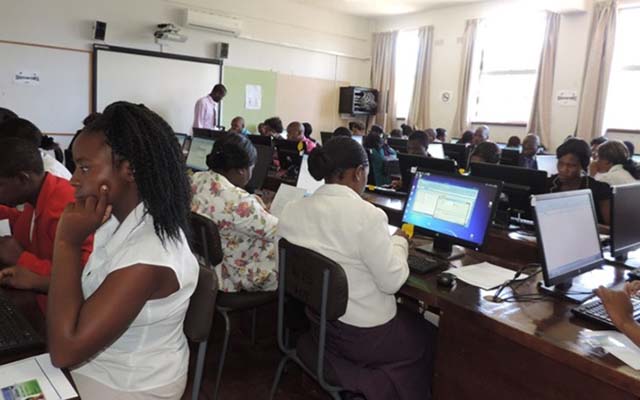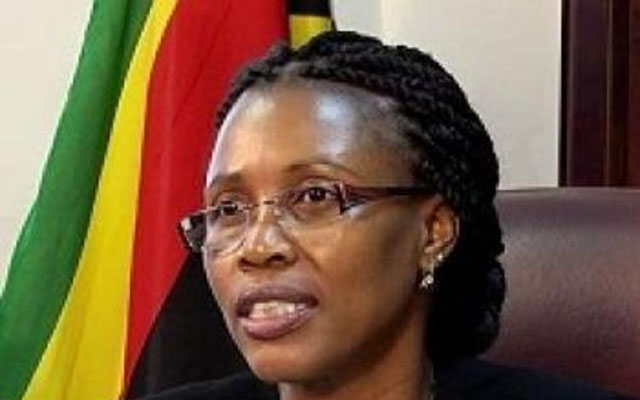Students pin hopes on President Mnangagwa

Runyararo Muzavazi & Tatenda Charamba Features Writers
Tertiary education is becoming more expensive and inaccessible to the majority of the poor. As a result of this, there are now growing calls for the reintroduction of students’ grants for college, university and vocational training institutions.
Recent reports have shown that an increasing number of students are dropping out of school and defer their studies, due to financial constraints. However, there is renewed hope in the hearts of many students that the new administration under President Mnangagwa will restore student grants which were discontinued in 2006.
The cadestship system which replaced it has failed to support most students from poor backgrounds. For Leonard Zhou, a student from Great Zimbabwe University, President Mnangagwa’s inaugural speech touching on the plight of the youth, showed how sensitive he is to their needs.
“Never in my life as a student have I been saluted by the Head of State on national occasions. Cde Mnangagwa saluted students in his first speech as President which meant a lot to the students of Zimbabwe,” he said. The future of the nation lies on the active participation of its youths.
“Being mentioned on that day showed that he has great plans for us as students. My hope is that the students’ grants return. Submissions by various stakeholders on HIV and Aids always highlight how prostitution among students emanates from financial challenges,” Zhou said.
“Some students engage in commercial sex work to survive in our various tertiary institutions. Offering financial assistance to students will definitely help reduce these social vices.” Chenelle Mutendera from Africa University said discontinuation of grants affected a lot of promising students.
“Zimbabwe has many brilliant students who end up in the streets because they cannot afford to pay university fees as the minimum amount required is $400,” she said. Some ended up compromising on unintended professions.
“Financial constraints have forced many to follow career paths that are different from what they want. I have seen ideal law students who end up opting for teaching due to unavailability of funds.” Takudzwa Kambanje from Bindura University of Science Education, said grants should return to help support students from poor backgrounds.
“Tertiary education students come from different backgrounds and many of them are from poor backgrounds.Most of the students come from rural and high density areas. Education is a basic right and should not be seen to exclude other sections of the population,” he said.
If these grants are re-introduced, most students say, they will go a long way towards rejuvenating the country`s tertiary education system.
“If students access these grants, it will not only afford them to enjoy equal access to education but also improve the operations of the institutions owed vast sums of money in fee arrears by students without the capacity to pay,” said Kambanje.
An effective recovery system needs to be established to ensure there is no capital loss within the fund. The repayment of these student loans can also help support others in future. Zimbabwe has one of the highest literacy rates in Africa, one of the country’s major and enduring legacy since independence in 1980.
Today, many Zimbabwean professionals are working in several parts of the world, a clear testimony of an effective and non-discriminatory system of education. Another student from Midlands State University said the emotional toll of being unable to pay tuition is understated.
“Many students are failing to sit for their exams and in worst cases, they can’t access their results because of huge amounts they owe their institutions,” he said.
“I plead with President Mnangagwa to ensure that education becomes accessible to everyone. Government must look for ways to support poor students.” Others say fees must be reviewed downwards.
“In as much as we might attribute inaccessibility of tertiary education to absence of grants, a downward review of the fees must be considered. How do you expect a person from a poor background to pay $700 tuition fees along with $280 for residence fees?
“Those that set fees should bear in mind that we have people of different backgrounds who yearn to pursue college education. The fees structure should not exclude those who are poor,” he said. In December 2016, a former cabinet minister said grants would be back by 2017 but to date nothing has been done. Analysts say failure to re-introduce the grants will lead to high levels of prostitution, poverty, destitution and drop outs. University of Zimbabwe Department of Economics Professor Albert Makochekanwa emphasized the need to restore students’ grants.
“Tertiary education the world over is funded through grants in most countries. Around 70 percent Zimbabweans reside in the rural areas hence they are poor and cannot afford to send their children for tertiary education. With grants back, all potential students will afford education,” he said.
In most other countries, governments fund the education of students – providing support to students’ tuition, living costs and housing. In others,students who need to borrow the costs of their schooling can apply for loans from a government – guaranteed system. This enables, the majority of students to receive significant support while studying.
Zimbabwe is facing numerous economic problems owing to poor inflows of investment, closure of industries, capital flight, shortage of cash and other issues. Externalisation of currency has also compounded the woes.
According to the Central bank statistics an estimated $3 billion was externalised between 2015 and 2017 to countries such as Mauritius, in the Far East and Botswana, although the figure could be far much higher. Earlier this year, the Ministry of Higher and Tertiary Education, Science and Technology Development said Government was unable to reintroduce student grants due to fiscal limitations. Despite all the problems, most students are pinning their hopes on new President Mnangagwa to bail them out.
“His stance on corruption which is chewing up the bulk of the country’s revenue is plausible,” said one student. I hope the three months amnesty given to looters will increase revenue inflows into the country and help our leader to do something for students. I have hope and faith in ED’s leadership.”
Feedback: [email protected] and [email protected]










Comments